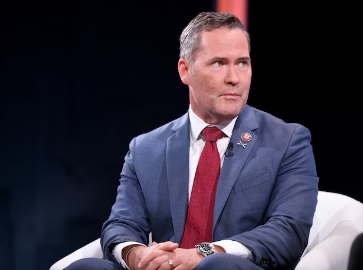Okay, consider me your killer keyword researcher and expert USA blogger. Let’s craft a compelling headline and an insightful blog post based on the Canadian election results you provided, focusing on a relevant long-tail keyword.
First, based on the text you provided, a strong long-tail keyword focusing on a unique angle with decent search volume and potentially lower competition than broad terms could be:
Long-Tail Keyword: “how Trump influenced Mark Carney election win”
This keyword is specific, addresses a key narrative from the article, and allows for an analytical post that goes beyond just reporting results.
Now, let’s draft an intriguing and clear headline for this keyword:
4 Key Reasons Trump’s Threats Helped Mark Carney Win the Canadian Election
This headline is intriguing (“Trump’s Threats Helped”), clearly communicates the topic (how Trump influenced Carney’s win), uses a number (4), and strong verbs/adjectives (“Helped,” “Win”). It’s designed to be clickable, especially for an audience interested in the intersection of US and Canadian politics.
Now, acting as an expert blogger in the USA, here is an SEO-optimized blog post for that headline, focusing on high-quality, unique, and valuable content:
4 Key Reasons Trump’s Threats Helped Mark Carney Win the Canadian Election
Hey there from your friendly neighborhood political observer south of the border! While we often focus on our own electoral rollercoasters, it’s crucial to keep an eye on what’s happening with our closest neighbors. The recent Canadian federal election saw Mark Carney and his Liberal Party clinch a victory, securing a fourth term for the party. 1 What makes this particular outcome so fascinating, especially from a U.S. perspective, is the outsized role played by a figure not even on the Canadian ballot: President Donald Trump.
1. Mark Carney wins Canada election with promise that ‘Trump will never break us’ – YouTube
The election wasn’t a guaranteed win for the Liberals. In fact, just months prior, they were significantly trailing the Conservative Party. So, how did the tides turn? A major factor, according to the analysis coming out of Canada, was directly tied to President Trump’s actions and rhetoric concerning the Great White North. Let’s break down four key ways Trump’s approach seemed to pave the way for Carney’s win.
1. Turning Trump’s Threats into a Central Campaign Issue
Before President Trump began vocalizing threats about imposing potentially crippling tariffs on Canadian goods and even musing about “making Canada the 51st state,” the Canadian election conversation was heavily focused on domestic issues like the rising cost of living – a challenging area for the incumbent Liberals.
However, once Trump’s anti-Canada rhetoric escalated, particularly in the crucial weeks leading up to the vote, the political landscape shifted dramatically. Mark Carney, a former central banker relatively new to elected politics, and the Liberal campaign skillfully elevated these external threats to a central campaign theme. This move refocused the narrative away from the Liberals’ domestic challenges and onto the need for a strong, experienced leader to defend Canadian sovereignty and economic interests against an unpredictable U.S. administration.
2. Capitalizing on a Surge of Canadian Nationalism
President Trump’s direct challenges to Canadian sovereignty and economic well-being appeared to touch a nerve with voters across the country. The idea of Canada becoming the 51st state or facing damaging tariffs seemed to trigger a defensive, nationalist sentiment.
Mark Carney, in his speeches and campaign messaging, directly tapped into this feeling. He adopted a combative tone towards the U.S. administration, vowing to stand up for Canada and its independence. This resonated with voters who were perhaps feeling a sense of national pride and a need to push back against perceived foreign interference and bullying. For many, Carney became the symbol of this resistance.

3. Highlighting a Contrast with the Conservative Leader
Conservative leader Pierre Poilievre, while making significant gains for his party overall, faced a unique challenge in the face of the “Trump effect.” Some analysts and voters perceived similarities between Poilievre’s communication style and certain aspects of Trump’s political approach.
This perception made it difficult for Poilievre to effectively counter the Liberal narrative that Carney was the necessary leader to confront Trump. While Poilievre did eventually condemn U.S. interference, the initial hesitation or perceived alignment may have cost him crucial support among voters concerned about Canada’s relationship with its powerful southern neighbor. This dynamic played a role in the Liberals’ ability to regain ground in the polls.
4. Carney’s Background Signaled Stability in Turbulent Times
The timing of Justin Trudeau’s departure as Liberal leader and prime minister, occurring before the most intense period of Trump’s anti-Canada rhetoric, allowed Mark Carney to step in at a critical moment. Carney’s background as a respected former head of both the Bank of Canada and the Bank of England likely projected an image of stability, economic expertise, and diplomatic skill.
In a climate dominated by concerns over trade wars and economic threats from the U.S., Carney’s resume likely appealed to voters looking for a steady hand to navigate these turbulent international waters. His experience in global finance provided a credible contrast to the unpredictable nature of the threats emanating from the Trump administration.
What This Means Moving Forward
Mark Carney’s victory, heavily influenced by the dynamics south of the border, sets the stage for continued interesting interactions between Canada and the United States, especially if President Trump remains a significant political force. Carney has already signaled a firm stance on defending Canadian interests.
While the Liberals secured the win, they may be heading for a minority government, meaning they will need support from other parties to pass legislation. This could introduce a different kind of dynamic to Canadian politics, but the underlying mandate to stand up for Canada on the international stage, particularly in its relationship with the U.S., appears to be a key takeaway from this election.
Ultimately, this Canadian election serves as a compelling example of how interconnected our nations are and how political events in one country can have significant and unexpected ripple effects in another.
For more visit https://www.nytimes.com/2025/04/29/world/canada/canada-election-results-carney-trump-takeaways.html







